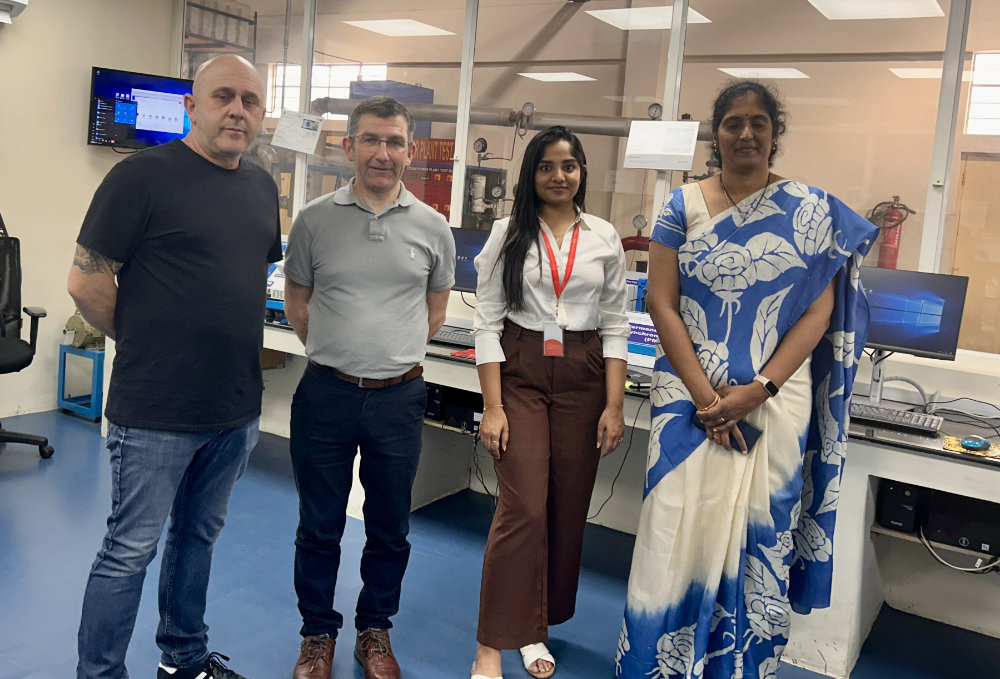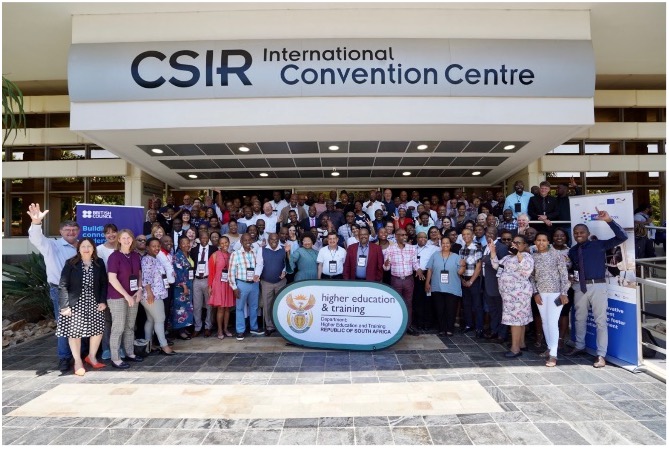
Iraq – Vocational Leadership Development
| IRAQ: In November 2018, NI Colleges delivered a leadership and management training programme to senior leaders from the Iraqi Technical and Vocational Education and Training (TVET) sector, supporting a wider government-led project “Reforming technical and vocational education and training (TVET) in Iraq” – funded by the European Union (EU) and managed by UNESCO.
TVET leaders from the Ministry of Education (MoE), the Ministry of Higher Education and Scientific Research (MoHESR) and Ministry of Labour and Social Affairs (MoLSA) ) attended a best practice study visit to NI, providing an opportunity for delegates to spend time and interact with the leadership teams within NI Colleges. |
Northern Ireland (NI) Colleges is an alliance of six regional Further and Higher Education Colleges, located in Northern Ireland (UK), specialising in Technical and Vocational Education and Training (TVET). Collectively, NI Colleges operate across 40 campuses, resourced by 3,500 professional and technical staff who service some 154,000 annual enrolments. Working alongside a network of 10,000 employers, NI Colleges provides a highly innovative curriculum that ensures learners develop professional and technical skills, increasingly at higher levels, to meet employer needs.
NI Colleges has a successful track record of delivering TVET training and capacity building projects across the globe with 250 international partnerships and over 60 “live” annual projects. It sends 600 students and 220 staff on mobility each year and welcome over 420 visitors to learn, share best practices and explore the cultural aspects of life in Northern Ireland, UK.
The 6 colleges that make up Northern Ireland Colleges are:
The purpose of the project was to improve the capacities and competences of TVET leaders and teachers from Government of Iraq (GOI) and the Kurdistan Region of Iraq (KRI).
At a national level, this was being achieved through the development and delivery of a comprehensive 12 month training and development programme building the capabilities of 100 leaders, 120 master trainers and 1080 teachers, trainers and instructors from across the TVET sector. The programme included a good practice UK study visit programme.
NI Colleges welcomed three groups of Iraqi leaders and were required to design and deliver a leadership work shadowing programme for participating principals, deans, trainers and instructors representing the Ministry of Education (MoE) the Ministry of Higher Education and Scientific Research (MoHESR) and Ministry of Labour and Social Affairs (MoLSA).
NI Colleges were also required to develop a CPD self-assessment framework, toolkit and guidance manual for leaders and trainers, to support the production of quality data and analysis, effective planning, implementation and monitoring of training and development.
| The purpose of the work shadowing programme was to give the Iraqi delegates an experience of strategic leadership in a responsive, flexible, vocational college in the UK.
This was achieved through a combination of work shadowing sessions, meetings and interviews with the principal/chief executive, key senior staff and stakeholders, which provided them with an understanding of how leadership in action works across the college to achieve the best possible learner outcomes. NI Colleges offered a full training package, including bespoke work shadowing programmes for each group, hospitality, accommodation, and transportation. Activities under the scope of work also included the development of a self-assessment framework for TVET Colleges in Iraq, to support them establish a robust self – evaluation system based on quality performance indicators. |
During the programme delegates spent time with NI Colleges senior management and governing bodies, were they received an insight into:
- Leadership styles and responsibilities of the principal/chief executive and senior management team.
- Institutional planning and leadership of change.
- Continuous quality improvement, resource management, learner support and staff professional development.
- Engagement with the wider external environment and how employer and other stakeholder needs shape the college offer.
The project was part of a series of reforms in Iraq directed at improving the quality and relevance of TVET in order to produce skilled and employable graduates that can compete in the national and international labour markets.
Creating a Technical Vocational Education and Training system that can keep pace with global change and equip young people in Iraq with the skills required to meet the unknown workplace of the future is core to this ambitious capacity building programme being implemented by the British Council and UNESCO.
The outcome of the NI Colleges work shadowing programme contributed to the achievement of this ambition, through the development and delivery of a comprehensive work showing programme, raising the quality of TVET in Iraq by enabling their leaders to experience first-hand the brilliant leadership, teaching and training in Northern Ireland.
The Iraqi leaders experienced strategic leadership in action, providing them with an understanding of how leadership works to achieve the best possible learner outcomes, particularly in post-conflict societies.
The long-term impact will see the capabilities of TVET leaders, teachers, trainers and instructors across the country significantly enhanced to effectively respond to the challenge of developing a high quality and responsive TVET system.









